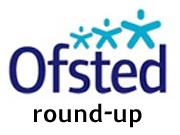Ofsted round-up – This week: RAF flies high on good grades

The Royal Air Force, Gloucester
Summary of grades awarded:
Effectiveness of provision Good: Grade 2
Capacity to improve Good: Grade 2
Achievement and standards Good: Grade 2
Quality of provision Good: Grade 2
Leadership and management Good: Grade 2
Equality of opportunity Contributory grade: Satisfactory: Grade 3
Sector subject areas:
Health, public services and care Good: Grade 2
Engineering Satisfactory: Grade 3
Transportation operations and maintenance Good: Grade 2
Information and communication technology Good: Grade 2
Retail and commercial enterprise Good: Grade 2
Arts, media and publishing Good: Grade 2
Business, administration and law Good: Grade 2
The Royal Air Force HQ 22 Training Group is responsible to HQ Air Command for the provision of appropriately trained military and civilian personnel. HQ 22 set the RAF Apprenticeship policy and strategy that provides the strategic guidance for the delivery of apprenticeship programmes. Funding comes from the LSC’s National Employers’ Service and is separate from the central government funding for the UK’s armed forces. A total of 1,420 learners are in learning, 48% of which are apprentices and 52% advanced apprentices.
Ofsted found that the overall effectiveness of the provision was good and that the RAF’s capacity to improve is also good with success rates improving progressively over the past two years, in some cases to 100%. Ofsted found that good strategies have been developed to work with the different chains of command at GTS and Main Operating Bases and have overcome the traditional limitations of seniority and authority imposed by rank. Formed in 2005/06, The Apprenticeships Management Team’s Apprenticeship Strategic Management Group (ASMG) continues to provide good supervisory oversight, target-setting and monitoring of the programmes.
Ofsted found AMT’s self-assessment report to be satisfactory with AMT producing a useful strategic-level self-assessment report (SAR) drawing on the individual SARs produced by each GTS. The SAR process was sufficiently inclusive of staff and learners’ views, however, the SAR process is not sufficiently integrated in the wider quality improvement process of the provision at GTS level.
Key strengths within the Royal Air Force include a very high overall success rate on most of the programmes, good development of learners’ practical skills, very good resources to enhance and develop learning on most programmes, particularly good welfare and vocational support for learners and good strategic planning, co-ordination and performance management of the apprenticeship programmes. Key areas for improvement include, insufficient planning of teaching and learning for learners’ varying skills and needs, insufficient progression opportunities for all learners and ineffective strategic coordination and quality management of self-assessment.
Overall success rates in the Royal Air Force significantly exceed national rates on all programmes. On some programmes, overall success rates are outstanding, at or around 100%. Timely success rates are good on most programmes, except for engineering, which has the largest number of learners and where the timely success rate is historically and currently low.
Natalie Hailes







Responses